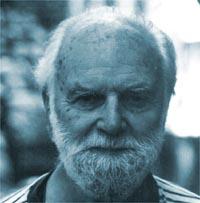Thomas Hobbes Quotes
Life in the state of nature is solitary, poor, nasty, brutish, and short.
Thomas Hobbes (2016). “Thomas Hobbes: Leviathan (Longman Library of Primary Sources in Philosophy)”, p.9, Routledge
Quoted by Johnson, Enemies of Society (1977). Johnson's corollary is "Survival is falsehood detected in time."
Thomas Hobbes, Alan Cromartie, Quentin Skinner (2005). “Thomas Hobbes: Writings on Common Law and Hereditary Right: A Dialogue Between a Philosopher and a Student, of the Common Laws of England. Questions Relative to Hereditary Right”, p.10, Oxford University Press
Thomas Hobbes, Bernard Gert (1972). “Man and Citizen: De Homine and De Cive”, p.113, Hackett Publishing
Thomas Hobbes (2008). “Leviathan”, p.256, Simon and Schuster
Thomas Hobbes (2016). “Thomas Hobbes: Leviathan (Longman Library of Primary Sources in Philosophy)”, p.82, Routledge
Thomas Hobbes (2005). “Leviathan, Parts I and II”, p.98, Broadview Press
Thomas Hobbes (2015). “Leviathan”, p.145, eKitap Projesi
The passions of men are commonly more potent than their reason.
Thomas Hobbes (2008). “Leviathan: Or the Matter, Forme, and Power of a Commonwealth Ecclesiasticall and Civil”, p.145, Simon and Schuster
"Very Happy to Be Here!". Book by Edward Pavlik, p.137, December 1, 2006.
The first and fundamental law of Nature, which is, to seek peace and follow it.
Thomas Hobbes (2015). “Leviathan”, p.148, eKitap Projesi
For if all things were equally in all men, nothing would be prized.
Thomas Hobbes (2008). “Leviathan”, p.37, Cosimo, Inc.
Thomas Hobbes, Richard Tuck (1996). “Hobbes: Leviathan: Revised Student Edition”, p.184, Cambridge University Press
Thomas Hobbes (2008). “Leviathan”, p.101, Simon and Schuster
Thomas Hobbes, John Bramhall, Vere Chappell (1999). “Hobbes and Bramhall on Liberty and Necessity”, p.92, Cambridge University Press
"The English Works of Thomas Hobbes of Malmesbury".
The best men are the least suspicious of fraudulent purposes.
Thomas Hobbes, Richard Tuck (1996). “Hobbes: Leviathan: Revised Student Edition”, p.473, Cambridge University Press







